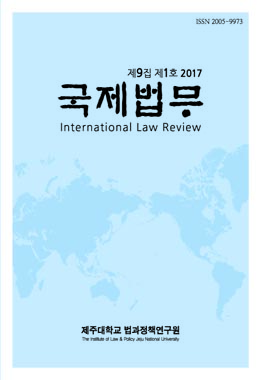对海上保险合同订立过程中的告知义务进行法律规制, 是各国保险法领域的重要一环。在保险实务中,保险人需测定保险事故发生的可能性以及由此产生的责任负担的盖然率, 以决定是否承包以及承保条件, 这就需要全面掌握保险标的物的风险信息。但一般来说, 面对众多不同的投保人和被保险人, 保险人实际上无法对所有保险标的物进行实际调查并全面掌握其性质、特征等风险信息。因此,为了平衡保险合同双方当事人这一信息不对称的局面, 防范保险合同签订过程中的可能出现的道德风险与逆选择,保险投保人或被保险人需要承担向保险人事先告知有关保险标的物重要信息的义务,这被称为告知义务。
中国《海商法》上规定了海上保险合同中作为当事人的被保险人的告知义务, 但是,相关规定历经30年未经任何修改。同时, 中国《保险法》中也对一般保险合同中的投保人和被保险人的告知义务作出了规定,但与《海商法》中关于海上保险合同上的告知义务的规定存在不同。因此,这就导致了在司法实务上, 适用保险人的告知义务方面产生了混乱且暴露了很多问题。从国际视野来看, 关于告知义务的规定以及实务上的问题并不只存在于中国。韩国与中国虽然国情不同,但在韩国《商法》上也对告知义务进行了规定, 最近保险实务中也对被保险人的告知义务提出了改善的要求,为了解决这一问题,韩国学界也正在进行很多研究。
鉴于此, 本文立足于中国关于海上保险告知义务的现行规定, 即《海商法》法第222条、223条的具体内容, 比较分析其与韩国商法第651条、第651条之2、第655条的内容差异。此外,尽管中国在《海商法》中规定了海上保险中的告知义务, 但中国《保险法》中也规定了一般保险合同中投保人和被保险人的告知义务, 本文也对因此所导致的实务上的争议及审判中法律适用的混乱等进行了研究。因此, 本文主要通过比较研究, 并且结合司法实务案例分析, 对海上保险中被保险人的告知义务的制度内涵有了更深地理解, 也系统地梳理中国《海商法》现行规定中暴露的问题。进而在参考韩国规定的基础上, 提出初步的改善方案构想, 以期公平合理地保护保险人与被保险人双方利益, 也将为现行法律的修订以及海上保险市场的健康发展提供实践基础。
The legal regulation of the Disclosure Obligation during the conclusion of a marine insurance contract is an important aspect in the field of insurance law in various countries. Generally speaking, the insurer decides whether to acquire insurance by determining the loss potential of the insured object for insurance purposes and calculates a reasonable premium based on the risk of loss before entering into an insurance contract. However, in insurance practice, with so many different applicants and insured persons, it is not possible for an insurer to conduct a physical survey of all the insured objects and to grasp their nature and characteristics before entering into an insurance contract. Therefore, in order to balance the information imbalance between the parties to the insurance contract regarding the specific risk of the insured object, and to prevent moral hazard and adverse selection in the process of concluding the insurance contract, the applicant or the insured is obliged to provide material information about the insured object, which is known as the Disclosure Obligation.
The Chinese Maritime Law provides for the disclosure obligations of the insured as a party to a marine insurance contract, but the relevant provisions have not been amended for 30 years. At the same time, the Insurance Law of China also provides for the disclosure obligations of the policyholder and the insured in general insurance contracts, but there are differences with the provisions of the Maritime Law regarding the disclosure obligations in marine insurance contracts. As a result, this has led to a number of problems being revealed in judicial practice in relation to the application of the insurer's duty to disclose. Problems regarding the duty of disclosure in practice are not just a problem in China. From an international perspective, the provisions on the Disclosure Obligation and the problems in practice do not exist only in China. Although Korea has different national circumstances from China, the duty of disclosure is also regulated in the Korean Commercial Act, and recently there have been demands in insurance practice for improvements to the insured’s duty of disclosure, and much research is being carried out in Korean academia to address this issue.
Against this background, this article provides an overview of the specific content of the current provisions on the disclosure obligation in Chinese Maritime Law, that is, Articles 222 and 223 of the Maritime Law, by outlining the differences with the content of Articles 651, 651-2 and 655 of the Korean Commercial Act. In addition, although China provides for a disclosure obligation in the Maritime Law, there are different provisions in the Chinese Insurance Law regarding this content. As a result, there has been confusion in practice and problems in the application of the law in trials. Accordingly, this paper focuses on a comparative study combined with case studies of judicial practice to develop a deeper understanding of the institutional connotation of the insured’s disclosure obligations in marine insurance, as well as to systematically sort out the problems exposed by the current provisions of China’s Maritime Law. In addition, the study will also systematically review the problems revealed in the existing provisions of the Chinese Maritime Law, and propose preliminary ideas for improvement based on the provisions of the Korean Commercial Act, with a view to protecting the interests of both the insurer and the insured in a fair and reasonable manner, as well as providing a practical basis for the revision of the existing law and the healthy development of the marine insurance market.




